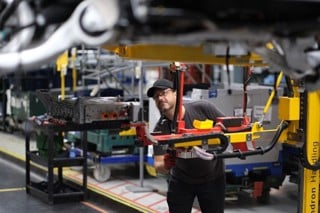The BVRLA has welcomed extended funding timelines for local road improvements, but expressed concern at the proposed levels and system for awarding funding for local road maintenance and repairs.
BVRLA shows concern at new road funding plans
- By Fleet News
- |
- 24 December 2014
- News


















Login to comment
Comments
No comments have been made yet.